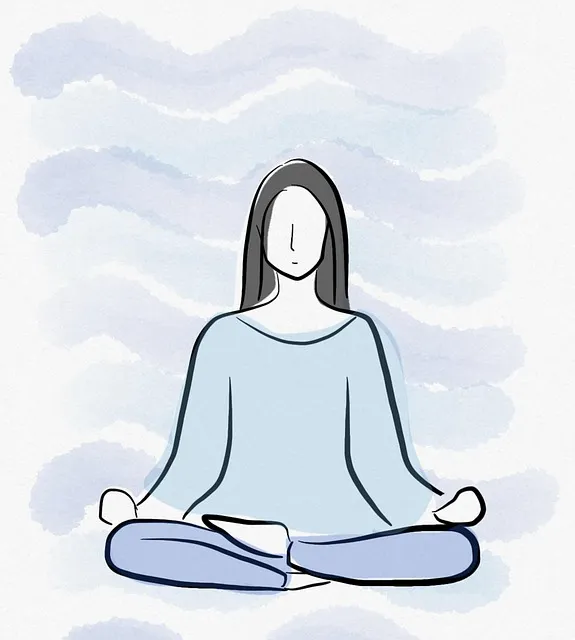The Kaiser Permanente behavioral health center Lafayette offers a comprehensive stress management program focusing on prevention through communication and conflict resolution, evidence-based Cognitive Behavioral Therapy (CBT), mindfulness practices, and holistic lifestyle adjustments. Their Community Outreach Program provides accessible coping strategies, benefiting healthcare providers and community residents alike, fostering balance and resilience for overall well-being.
Stress reduction is an essential aspect of maintaining holistic well-being, especially in today’s fast-paced world. At the Kaiser Permanente Behavioral Health Center Lafayette, understanding stress involves identifying triggers through various methods, including Cognitive Behavioral Therapy (CBT) and mindfulness practices. This article explores these techniques, along with lifestyle changes such as nutrition, exercise, and sleep, to help readers find a calmer, more balanced state of being.
- Understanding Stress: Identifying Triggers at the Kaiser Permanente Behavioral Health Center Lafayette
- Cognitive Behavioral Therapy (CBT): A Powerful Tool for Stress Management
- Mindfulness and Meditation Practices to Reduce Daily Pressure
- Lifestyle Changes: Nutrition, Exercise, and Sleep for a Calmer You
Understanding Stress: Identifying Triggers at the Kaiser Permanente Behavioral Health Center Lafayette

At the Kaiser Permanente Behavioral Health Center Lafayette, understanding stress involves a deep dive into its multifaceted nature. Stress can manifest from various sources, often triggered by personal and professional factors alike. The center recognizes that burnout is a significant concern among healthcare providers, making it crucial to implement effective burnout prevention strategies. By fostering an environment that promotes open communication and encourages the use of conflict resolution techniques, the center aims to identify and mitigate stress triggers early on.
Through its Community Outreach Program Implementation, the Kaiser Permanente Behavioral Health Center Lafayette equips individuals with tools to recognize and manage their stress levels. This proactive approach not only benefits healthcare providers but also extends to the community, ensuring that residents have access to resources designed to alleviate daily stressors. By addressing these issues holistically, the center strives to create a more balanced and resilient society.
Cognitive Behavioral Therapy (CBT): A Powerful Tool for Stress Management

Cognitive Behavioral Therapy (CBT) is a highly effective and evidence-based method for managing stress and anxiety. Offered by Kaiser Permanente behavioral health centers, like the one in Lafayette, CBT focuses on identifying and changing negative thought patterns that contribute to emotional distress. By teaching individuals to challenge and replace irrational beliefs with more realistic and positive ones, CBT empowers them to better cope with stressful situations.
This approach not only helps in stress reduction but also plays a crucial role in mental illness stigma reduction efforts, as it promotes emotional intelligence and self-awareness. Community outreach programs implemented by Kaiser Permanente behavioral health centers further enhance accessibility to these services, making it easier for folks to learn and practice CBT techniques. Through regular sessions with trained therapists, individuals can develop valuable coping strategies that can significantly improve their overall well-being.
Mindfulness and Meditation Practices to Reduce Daily Pressure

Mindfulness and meditation practices have emerged as powerful tools to reduce daily stress and promote overall well-being. At the Kaiser Permanente behavioral health center Lafayette, experts emphasize the transformative potential of these ancient techniques in our modern, fast-paced lives. Incorporating mindfulness into your daily routine can help you cultivate a deeper sense of presence and calm, enabling better coping mechanisms when faced with stressors.
Through focused breathing exercises and non-judgmental awareness, meditation allows individuals to disconnect from negative thought patterns and feelings of anxiety or depression. The consistent practice of these emotional healing processes supports the development of a robust self-care routine, fostering improved self-esteem and enhanced mental resilience. By taking time each day to quiet the mind and nurture inner peace, individuals can better navigate life’s challenges with clarity, balance, and composure.
Lifestyle Changes: Nutrition, Exercise, and Sleep for a Calmer You

At the Kaiser Permanente behavioral health center Lafayette, experts emphasize that cultivating a calmer mind starts with holistic lifestyle adjustments. Nutrition plays a significant role; incorporating stress-reducing foods like leafy greens and omega-3 fatty acids can boost your mood and energy levels. Regular exercise, whether it’s yoga, walking, or strength training, releases endorphins known as “feel-good” hormones, which can alleviate tension and promote relaxation. Adequate sleep is another cornerstone of self-care practices; aim for 7-9 hours nightly to allow your body and mind to rejuvenate.
These lifestyle changes, often facilitated through Stress Management Workshops organized by the Kaiser Permanente behavioral health center Lafayette, contribute to developing inner strength. By focusing on balanced nutrition, movement, and rest, individuals can better navigate life’s challenges, fostering resilience and overall well-being. Incorporating these self-care practices into daily routines is a powerful step towards harnessing your inner strength and leading a more tranquil life.
Stress reduction is a holistic journey, and integrating various methods can lead to significant improvements in overall well-being. As seen at the Kaiser Permanente Behavioral Health Center Lafayette, understanding stress triggers is the first step towards managing them effectively. Cognitive Behavioral Therapy (CBT) offers powerful tools to challenge negative thought patterns, while mindfulness practices like meditation help cultivate calmness amidst daily pressures. Moreover, lifestyle changes such as proper nutrition, regular exercise, and adequate sleep are essential pillars for a calmer and more resilient self. By combining these stress reduction methods, individuals can navigate life’s challenges with greater ease and resilience, ultimately enhancing their overall quality of life.






